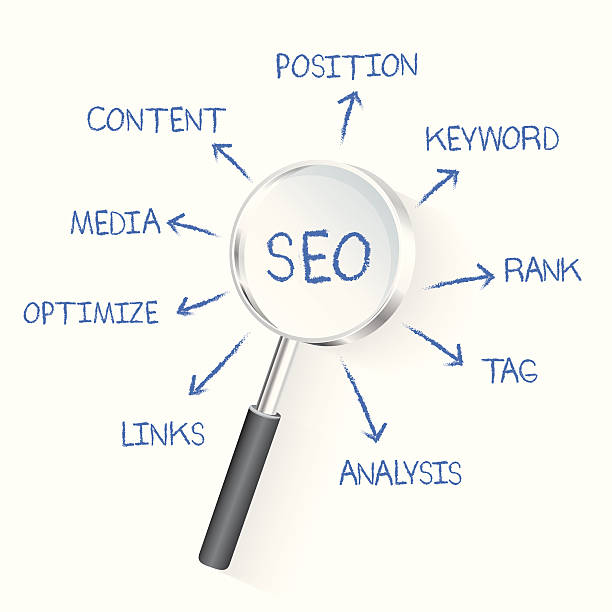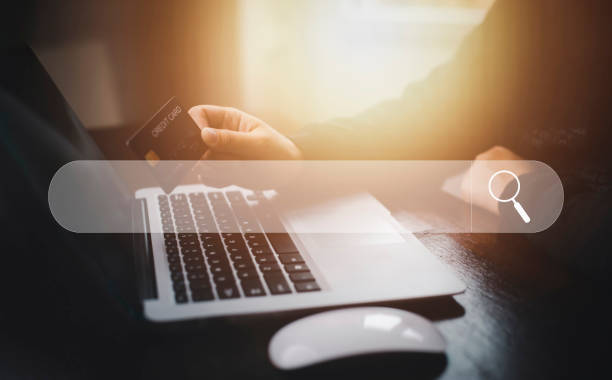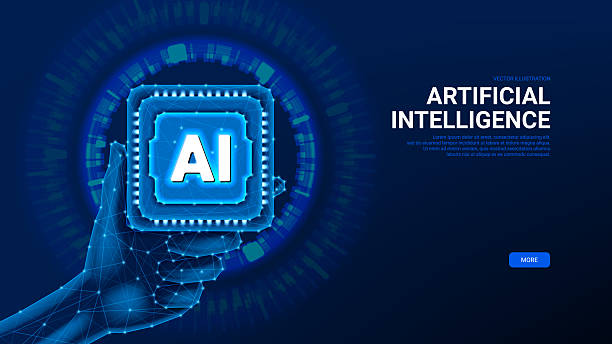What is Technical SEO and Why Does it Matter?
What is Technical SEO and Why Does it Matter?
Technical SEO focuses on optimizing the technical aspects of a website so that search engines like Google can easily crawl, index, and understand it.
Unlike On-Page SEO, which focuses on content and keywords, and Off-Page SEO, which focuses on link building and site authority, Technical SEO optimizes the website’s infrastructure.
The importance of Technical SEO is that if search engines cannot properly see and understand your site, your valuable content will never have the opportunity to rank.
A site with strong Technical SEO is more likely to achieve high rankings in search engine results (SERPs), attract more organic traffic, and ultimately achieve its business goals.
SEO in 2024 has undergone significant changes compared to previous years.
Simply put, Technical SEO provides the foundation upon which other SEO strategies are built.
If this foundation is weak, your efforts in other areas of SEO may be fruitless.
Are you tired of your company’s website failing to meet your expectations? With Rasaweb, design a professional website that showcases the true face of your business.
✅ Increase the attraction of new customers and sales leads
✅ Increase the credibility and trust of your brand among audiences
⚡ Get free website design consultation!
Crawling and Indexing: Keys to SEO Success
Crawling and Indexing: Keys to SEO Success
Crawling is the process by which search engine bots (like Googlebot) visit web pages and collect their information.
Indexing refers to the process of storing and organizing this information in the search engine’s database.
If your web pages are not properly crawled and indexed, they will not appear in search results.
Several factors can affect crawling and indexing, including:
- Robots.txt file This file allows search engines to determine which pages should not be crawled.
Incorrect settings in this file can prevent important pages from being crawled. - XML Sitemap An XML sitemap is a list of all the important pages on your website that helps search engines understand your site’s structure and quickly find new pages.
- URL Structure The URL structure should be logical and readable so that it is understandable for both users and search engines.
- Crawl Errors Errors such as 404 (page not found) and 500 (server error) can prevent proper site crawling.
Click here to preview your posts with PRO themes ››
To improve crawling and indexing, make sure the Robots.txt file is set up correctly, create an XML sitemap and submit it to Google, have an optimized URL structure, and minimize crawl errors.
Optimizing Site Speed: User Experience and SEO Ranking
Optimizing Site Speed: User Experience and SEO Ranking
Site speed is one of the important factors in user experience and SEO ranking.
Users expect web pages to load quickly, and if your site is slow, users are more likely to leave.
Google also considers site speed as a ranking factor, so optimizing site speed can help improve your SEO ranking.
Factors that can affect site speed include:
- Image Size Large images can increase page load time.
Optimizing images by compressing them without losing quality can help improve site speed. - Code and Scripts Unnecessary code and heavy scripts can slow down the site.
Optimizing code and using techniques such as Minification and Concatenation can help improve site speed. - Hosting Choosing a suitable hosting service with a strong infrastructure can have a significant impact on site speed.
- Cache Using a caching mechanism can speed up page loading for subsequent visitors by saving a copy of the web pages.
There are several tools to test site speed, including Google PageSpeed Insights and GTmetrix.
Using these tools, you can identify the weaknesses of your site and take action to improve them.
SEO has a direct relationship with site speed.
| Factor | Impact on Site Speed |
|---|---|
| Image Size | Large images increase loading time. |
| Code and Scripts | Unnecessary code and heavy scripts slow down the site. |
| Hosting | Inadequate hosting reduces site speed. |
| Cache | Lack of caching increases page reloading. |
Mobile-First Indexing: Optimizing for Mobile
Mobile-First Indexing: Optimizing for Mobile
Google uses Mobile-First Indexing, meaning the mobile version of your website is considered for indexing and ranking.
This means that if your website is not optimized for mobile, you may lose your SEO ranking.
To optimize your website for mobile, consider the following:
- Responsive Design Use responsive design so that your website automatically adapts to the screen size of different devices.
- Loading Speed Make sure the mobile version of your website loads quickly.
- User Experience Make sure mobile users can easily navigate your website and access the information they need.
- Touch Capability Buttons and links should be large enough for mobile users to easily touch them.
Google’s Mobile-Friendly Test can help you make sure your website is optimized for mobile. SEO and mobile optimization have a direct relationship.
Are you losing potential customers due to an unprofessional website? Rasaweb is your answer! With our specialized corporate website design services:
✅ Enhance the credibility and position of your business
✅ Experience attracting more targeted customers
⚡ Take action now to receive a free consultation!
HTTPS and Site Security: Trust of Users and Search Engines
HTTPS and Site Security: Trust of Users and Search Engines
HTTPS is a security protocol that encrypts the communication between the user’s browser and your website.
Using HTTPS not only increases the security of your website but also gains the trust of users and search engines.
Google considers HTTPS as a ranking factor, so migrating your website to HTTPS can help improve your SEO ranking.
To migrate your website to HTTPS, you need to obtain an SSL (Secure Sockets Layer) certificate and install it on your server.
You should also make sure that all internal and external links on your website point to HTTPS.
A website that is not secure will never succeed in SEO.
Structured Data: Better Understanding of Content by Search Engines
Structured Data: Better Understanding of Content by Search Engines
Structured Data is code that helps search engines better understand the content of your website.
Using structured data, you can provide information such as product name, price, rating, and user reviews to search engines.
This information can be used in Rich Snippets in search results, which can help increase the click-through rate (CTR) of your website.
To add structured data to your website, you can use the Schema.org vocabulary.
Google’s Structured Data Markup Helper tool can help you create structured data code.
This feature is very important in SEO.
Fixing Crawl Errors: Finding and Solving Site Problems
Fixing Crawl Errors: Finding and Solving Site Problems
As previously mentioned, crawl errors can prevent search engines from properly crawling your website.
These errors can include 404 errors (page not found), 500 errors (server error), and other errors.
Google Search Console is a tool that helps you identify crawl errors on your website and take action to fix them.
By fixing these errors, you can make sure that search engines can access and index all the important pages on your website.
You will also improve your SEO by doing this.
| Error Code | Description | Recommended Solution |
|---|---|---|
| 404 | Page Not Found | Check the page path or create a 301 redirect. |
| 500 | Server Error | Check the server log and fix the code or server issue. |
| 403 | Access Forbidden | Check file and directory permissions. |
| 301 | Permanent Redirect | Check the destination address and make sure it is correct. |
Optimizing URL Structure: Creating SEO-Friendly URLs
Optimizing URL Structure: Creating SEO-Friendly URLs
Your website’s URL structure can have a significant impact on SEO.
SEO-friendly URLs are short, descriptive, and contain relevant keywords.
Avoid using long, complex URLs containing unnecessary characters.
Try to organize your website’s URL structure logically and hierarchically so that it is understandable for both users and search engines.
Also, avoid using too many keywords in your URL.
In fact, by following the principles of URL writing, we will have better SEO.
SEO can have a positive impact through the site’s URLs.
Are you worried about the low conversion rate of your online store and not getting the sales you want?
Rasaweb is your specialized solution for having a successful online store.
✅ Significant increase in conversion rates and sales
✅ Professional and user-friendly design to attract customer satisfaction
⚡ Ready for a transformation in online sales? Get a free consultation!
Using Canonical Tags: Preventing Duplicate Content
Using Canonical Tags: Preventing Duplicate Content
Duplicate content can be a big problem for SEO.
If multiple pages on your website have similar content, search engines may not be able to determine which page to rank.
The Canonical tag allows you to tell search engines which page is the original version of a content.
By using the Canonical tag, you can avoid penalties resulting from duplicate content and improve your SEO ranking.
The canonical tag is one of the most important features of SEO.
Monitoring and Measuring Technical SEO Results
Monitoring and Measuring Technical SEO Results
Technical SEO is an ongoing process and requires monitoring and measurement.
Using tools like Google Search Console and Google Analytics, you can track the performance of your website in various areas of Technical SEO.
These tools help you monitor crawl errors, site speed, organic traffic, and other important metrics.
By analyzing this data, you can identify the strengths and weaknesses of your Technical SEO strategy and take action to improve it.
Monitoring is also very important in SEO and should not be neglected.
SEO is not a one-day job and must be addressed continuously.
Frequently Asked Questions
| Question | Answer |
|---|---|
| What is SEO? | SEO, or Search Engine Optimization, is a process for increasing the quality and quantity of website traffic by improving the site’s ranking in the natural (organic) results of search engines like Google. |
| What are the main types of SEO? | SEO is divided into three main categories: On-Page SEO, Off-Page SEO, and Technical SEO. |
| What does On-Page SEO include? | On-Page SEO includes optimizing elements within the website, such as keywords, page title (Title Tag), meta description (Meta Description), content, URL structure, images, and internal links. |
| What is Off-Page SEO? | Off-Page SEO refers to activities outside the website that help improve its ranking, such as backlink building, social media marketing, and brand mentions. |
| What is Technical SEO? | Technical SEO focuses on optimizing the technical aspects of the website to help search engines crawl and index it better. This includes site speed, mobile-friendliness, site structure, sitemaps, and Robots.txt file. |
| What role do keywords play in SEO? | Keywords are phrases that users enter into search engines. Correct and targeted use of relevant keywords in the content and site elements helps search engines understand the topic of your page and display it in related searches. |
| What is a backlink and why is it important? | A backlink, or inbound link, is a link from one website to another website. Backlinks act as a “vote of confidence” from other sites for search engines and play an important role in the credibility and ranking increase of the site, especially if they are from reputable sites. |
| How does quality content affect SEO? | Quality content that is relevant, comprehensive, and unique not only attracts and retains users but also shows search engines that your page is valuable. This helps improve ranking, reduce bounce rate, and increase the amount of time users spend on the site. |
| Why is site loading speed important for SEO? | Site loading speed is an important ranking factor for Google. Faster sites provide a better user experience, have a lower bounce rate, and are preferred by search engines. |
| Is SEO a one-time process? | No, SEO is an ongoing and long-term process. Search engine algorithms are constantly changing, competition is increasing, and the site’s content also needs to be updated. Therefore, SEO requires continuous monitoring, analysis, and optimization. |
And other services of Rasa Web advertising agency in the field of advertising
Smart Direct Marketing: A dedicated service for sales growth based on customizing the user experience.
Smart Marketing Automation: Designed for businesses looking to engage users through intelligent data analysis.
Smart Custom Software: Transform online growth by helping to optimize key pages.
Smart Reportage: A combination of creativity and technology for digital branding through intelligent data analysis.
Smart Customer Journey Map: Professional optimization to increase site visits using marketing automation.
And more than hundreds of other services in the field of Internet advertising, advertising consulting and organizational solutions
Internet Advertising | Advertising Strategy | Reportage Ad
Resources
A Comprehensive Guide to Technical SEO from Ahrefs
,Technical SEO Training from Moz
,Latest Technical SEO News and Articles in Search Engine Journal
,How to Perform a Technical SEO Audit from Semrush
Ready to transform your business in the digital world? Rasaweb Afarin Digital Marketing Agency, with expertise in comprehensive services including custom website design, professional SEO, and targeted advertising campaigns, guides you on the path to online success. With us, your brand will shine at its peak.
📍 Tehran, Mirdamad Street, next to the Central Bank, South Kazerun Alley, Ramin Alley No. 6













